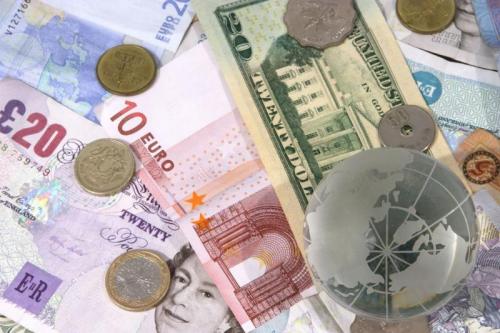Europe’s ongoing economic crisis and the evident discord among its key leaders have profound implications for the United States. Despite a new agreement during the most recent European Union summit last month, the crisis will likely endure for some time, with unpredictable political and economic consequences. Visionary and determined American leadership is essential both to help some of our closest and oldest allies and to protect our national interests, domestically and internationally.
The deep links between the American and European economies are not always fully appreciated. According to a recent study by the German Marshall Fund, European investment amounted to 72% of total foreign direct investment in the US in 2010. US-EU merchandise trade reached $632 billion in 2011.
The same study found that affiliates of European majority-owned companies employed 3.5 million Americans in 2010. Europe’s economic health has a clear, direct and unparalleled impact on America’s economy and American jobs.
The danger posed by Europe’s crisis to American interests is not solely economic. Even before the euro crisis, our European allies were contributing less and less to sustaining the North Atlantic Treaty Organization, with the US share of the costs rising to 70.5% in 2011, up from 63.6% in 2000. The crisis is sure to put further downward pressure on European defense spending. NATO was wholly unsuccessful in addressing this problem at its May summit.
The real-world consequences were apparent during NATO’s operations in Libya last year, when some allies nearly ran out of precision bombs. Looking ahead, though NATO members have formally committed to supporting Afghanistan’s government as most foreign military forces withdraw, their ability to do so is increasingly in question.
More broadly, a Europe compelled to focus inward to preserve the euro and the EU—already topics of heated debate within and among European nations—will be less capable of leading globally. It will also have trouble serving as an essential partner to the US. This challenge will exist at the EU, NATO, and individual-country levels; all will be preoccupied.
Tellingly, when France’s new president, François Hollande, declared last May that “it is not possible to allow Bashar Assad to massacre his own people,” German Foreign Minister Guido Westerwelle promptly retorted that “there is no cause for speculation over military options.” The message from Berlin was clear: A European-led military intervention in Syria will remain off the agenda. These are not new divisions, but they seem set to widen.
In this environment, US leadership is simultaneously harder and more important. The Obama administration’s approach to Libya—waiting for and then hiding behind France and the United Kingdom—simply will not work in dealing with current challenges and those that may emerge in the next three to five years.
Historically, only the US and Europe have had the ability to mobilize sufficiently broad international support to address major problems. Today, without leadership by one, the other or both, issues like Iran’s nuclear ambitions and Syria’s civil war will fester. This in turn will do more harm to US interests and to regional and international security—not to mention our shared values.
Unfortunately, President Obama seems to be handling the euro crisis in the same manner that his administration dealt with Libya and so many other major issues. Asked about the impact of Europe’s troubles on the US at the G-20 summit in Mexico, the president acknowledged the danger to the American economy but failed to report any action other than financial and regulatory reforms that do little to reduce the risk to the US—and then called on the Congress to pass his domestic jobs bill.
Of course, only Europe can ultimately solve its crisis, and the US must concentrate its resources at home. But we have too much at stake to sit on the sidelines.
One bold policy option would be to conclude a trans-Atlantic free-trade agreement between the US and Europe, something the EU has already welcomed in principle. Mr. Obama has called for greater trade with Europe, but his administration has pursued a free-trade agreement without a sense of urgency or clear leadership from the top.
An immediate and vocal commitment to free trade with Europe—followed by prompt action to make it happen—would send a powerful signal of America’s enduring confidence in its closest and deepest economic relationship. While not a panacea, reducing the costs of trans-Atlantic trade can contribute importantly over the longer term to creating new jobs and fueling sustained economic growth on both sides of the ocean. This is sure to strengthen American and European leadership for decades to come.
Paula Dobriansky, a former undersecretary of state for democracy and global affairs, is an executive committee member on the Atlantic Council’s Board, and is an adjunct senior fellow at the Harvard Kennedy School of Government’s Belfer Center for Science and International Affairs. Paul Saunders is executive director of the Center for the National Interest.
This piece was originally published in The Wall Street Journal.
Image: 262039_low.213150653_std.preview_0.jpg
